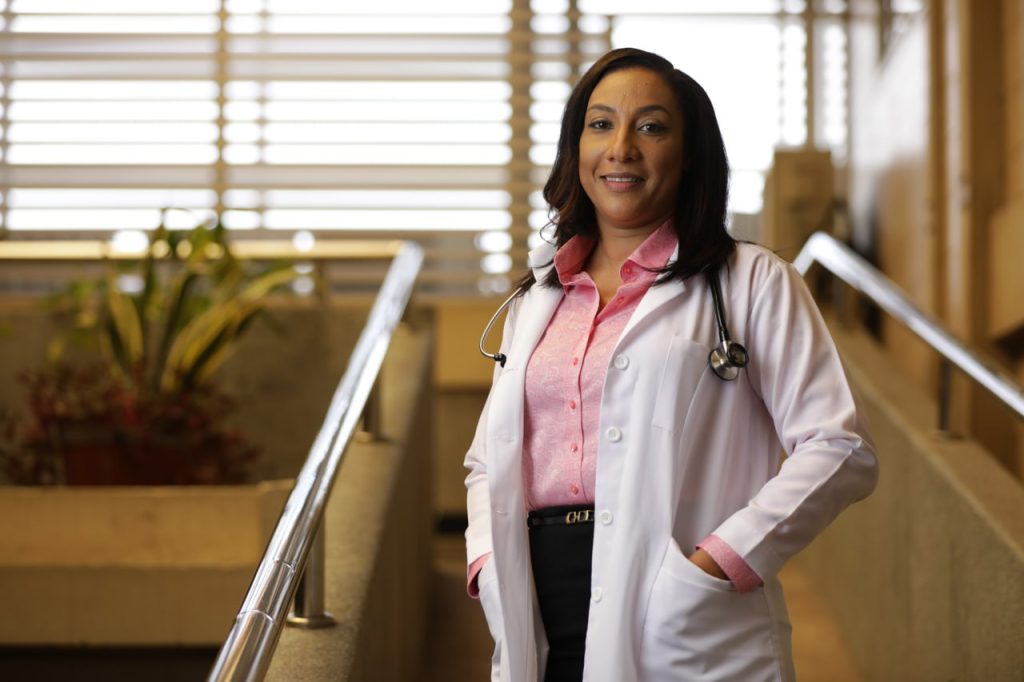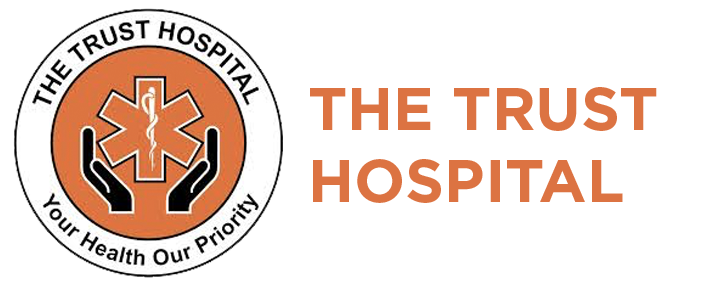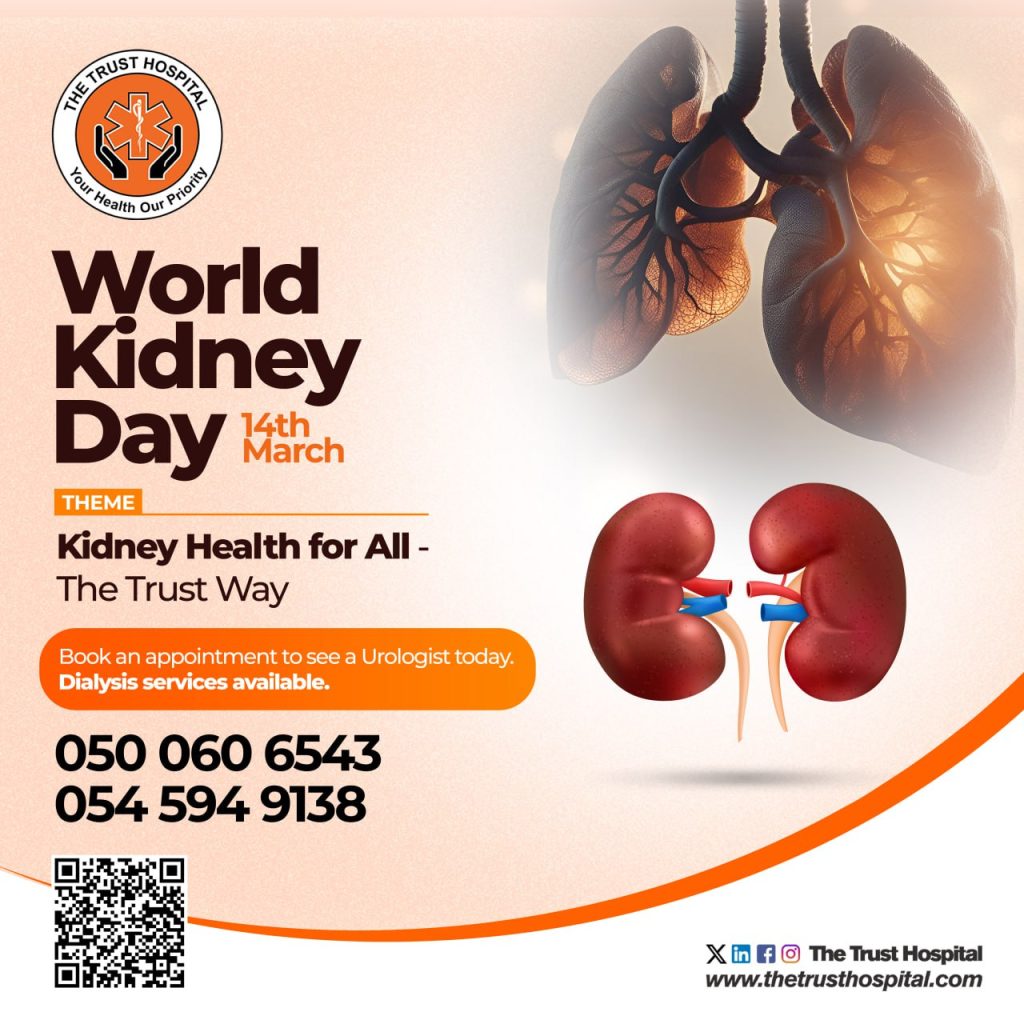The Trust Hospital as part of its many services renders renal services. Today being World Kidney Day, Dr. Jumana Sfrajilani, a Physician Specialist at The Trust Hospital espouses briefly on Chronic Kidney Disease (CKD), detailing the causes, symptoms, diagnosis, and treatment of the disease.
Chronic kidney disease (CKD) is a progressive loss of kidney function over months or years. Each of your kidneys has about a million tiny filters, called nephrons. If nephrons are damaged, they stop working. For a while, healthy nephrons can take on the extra work. But if the damage continues, more and more nephrons shut down. After a certain point, the nephrons that are left cannot filter your blood well enough to keep you healthy.
When kidney function falls below a certain point, it is called kidney failure. Kidney failure affects your whole body and can make you feel very ill. Untreated kidney failure can be life-threatening.
Causes of Chronic Kidney Disease
High blood pressure (hypertension) and diabetes are the most common causes of kidney disease.
Other less common conditions include inflammation (glomerulonephritis) or infections (pyelonephritis). Sometimes CKD is inherited (such as polycystic disease) or the result of longstanding blockage to the urinary system (such as enlarged prostate or kidney stones).
Some drugs can cause CKD, especially some pain-killing drugs (analgesics) if taken over a long time.
Symptoms
Most people have no symptoms until CKD is advanced. Signs of advancing CKD include swollen ankles, fatigue, difficulty concentrating, decreased appetite, blood in the urine and foamy urine.
How is CKD Diagnosed?
Simple laboratory tests are done on small samples of blood (to measure creatinine content and estimate GFR) and on urine (to measure creatinine and albumin excretion).
Your doctor uses the results of your Serum Creatinine measured in the blood to estimate your overall kidney function, or Glomerular Filtration Rate (GFR)
A simple “dipstick” test may be used to detect excess protein in the urine.
Treatment for CKD
There is no cure for chronic kidney disease, although treatment can slow or halt the progression of the disease and can prevent other serious conditions developing.
The main treatments are a proper diet and medications, and for those who reach ESRD, long term dialysis treatment or kidney transplantation. In the early stages of kidney disease, a proper diet and medications may help to maintain the critical balances in the body that your kidneys would normally control. However, when you have kidney failure, wastes and fluids accumulate in your body and you need dialysis treatments to remove these wastes and excess fluid from your blood, dialysis can be done either by machine (hemodialysis) or by using fluid in your abdomen (peritoneal dialysis).
The Trust Hospital advocates for kidney health for all and has a dialysis unit that caters for persons diagnosed with the disease. For this, it advocates for individuals to take good care of their health to prevent kidney disease. Also, if you experience any symptoms associated with kidney disease, it is crucial to consult your doctor and undergo a test for early detection. Early detection allows for proper treatment and prevents escalation to chronic kidney disease, which may require dialysis or a transplant.
Remember Kidney Health is vital for everyone, and it is important to take care of it in every possible way.

About The Trust Hospital Company Limited.
The Trust Hospital Company Limited is a well-known healthcare provider that is highly regarded for its exceptional healthcare services, advanced facilities, and skilled medical staff. With over 31 years of experience, the hospital is committed to providing quality healthcare services that are customer-centric and utilize the latest technology to enhance stakeholder value. The Trust Hospital offers a wide range of medical services, including general medicine, surgery, pediatrics, obstetrics, and gynecology, orthopedics, ophthalmology, dermatology, cardiology, and neurology, oncology, dialysis among others. The hospital also provides emergency care and critical care services across its 4 hospitals and 5 clinics located in the Greater Accra region of Ghana. The Trust Hospital is dedicated to sustainability, professionalism, teamwork, innovation, customer focus, and excellence. Choose The Trust Hospital for top-notch medical care.
SPICE-UP- The Trust way!







